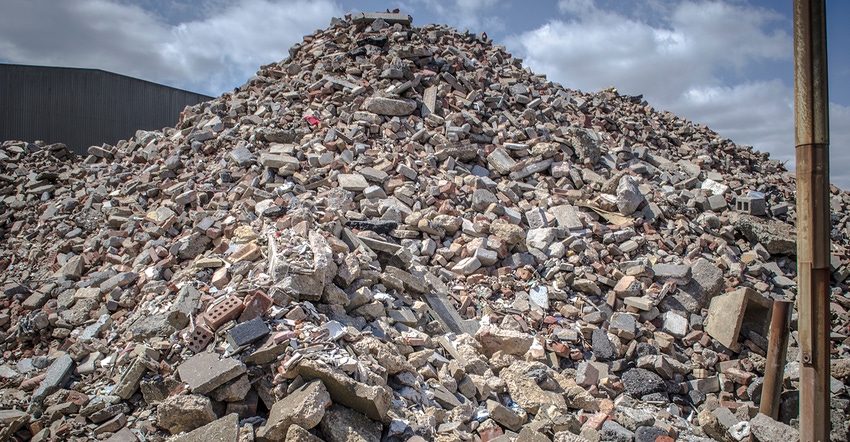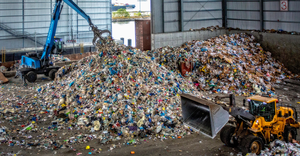Construction & Demolition Disposal and Transfer Leads to Court Case in King County, Washington
Catching some attention recently is an appeals court decision, affirming the right of a county to require transporters of locally generated construction and demolition (C&D) waste to bring the material to county-designated handling facilities – some located in-county, some in nearby jurisdictions. King County, Washington, through its county code, maintains and periodically revises a comprehensive solid waste management plan.
April 8, 2024

Predictions of a steep downturn or even a complete fizzle in waste flow control challenges have been proven right. They came in the wake of a U.S. Supreme Court ruling, in 2007, upholding the practice for public facilities. To be sure, no more flare-ups, but here and there a flicker.
Catching some attention recently is an appeals court decision, affirming the right of a county to require transporters of locally generated construction and demolition (C&D) waste to bring the material to county-designated handling facilities – some located in-county, some in nearby jurisdictions.
King County, Washington, through its county code, maintains and periodically revises a comprehensive solid waste management plan. Under the plan, the county seeks, among other goals, to ensure the proper disposal of C&D waste, to increase the amount of such waste that is recycled, to protect the environment, and to preserve existing landfill capacity.
To achieve these objectives, the county adopted a solid waste disposal code that regulates "all solid waste either generated, collected[,] or disposed, in unincorporated King County." In particular, the code mandates that "[a]ll generators, handlers and collectors of mixed C&D waste or nonrecyclable C&D waste generated within the county's jurisdiction shall deliver, or ensure delivery to, a designated C&D receiving facility" specified by the county. On the other hand, recyclable C&D materials may be disposed of at any recycling facility.
The plan describes a process for designating facilities to receive C&D waste generated or collected in King County. The county has designated eight disposal sites within its borders, as well as six facilities in adjacent Snohomish County and Pierce County. According to the county, these facilities are specifically designed to handle mixed and nonrecyclable C&D waste.
SkyCorp, which is based in Snohomish County, performs demolition, clearing, grubbing, soil remediation, tank removals, and excavation work. The company admittedly collected mixed C&D waste from sites in King County and disposed of the waste at a licensed, but not designated, facility in Yakima County. As a result, the county issued SkyCorp a citation and fined the company one hundred dollars.
SkyCorp responded by suing the county in the U.S. District Court for the Western District of Washington, asserting both federal and state law claims. SkyCorp argued that the county's C&D disposal rules violated the Commerce Clause and Due Process Clause of the United States Constitution. The district judge dismissed the federal claims, and an appeals court affirmed the ruling. The judge also dismissed the state law claims but under terms that allowed SkyCorp to take its case to state court.
The company subsequently sued the county in King County Superior Court. It argued that
the citation is an unconstitutional application of the county’s police power under the state constitution, which expressly authorizes municipal governments to regulate sanitation so long as
the regulations are local, reasonable, and do not conflict with state law. The company insisted that the county has no right to exercise power beyond its jurisdictional borders. SkyCorp further claimed that the county solid waste code violates the privileges and immunities clause of the state constitution by "den[ying] SkyCorp the privilege of disposing of its property at any location of its choice." In making this claim, SkyCorp argued that it has a constitutionally protected property interest in the C&D waste it collects and a fundamental right to freely dispose of its property.
The Superior Court rejected these arguments and entered summary judgment in favor of the county. Undaunted, SkyCorp appealed, presumably believing that its contentions would be better received in a higher court. No such luck. By a 2-1 margin, an appellate panel upheld the lower court ruling.
“First, we affirm the trial court's decision to grant summary judgment to the County,” said the panel majority. “The code is local in nature because it regulates the disposal of waste generated and collected within King County. The code is not contrary to state statutes, and the code is a reasonable exercise of the County's police power to regulate sanitation – a power expressly granted to local governments in the Washington Constitution. Second, we affirm the trial court's decision to grant summary judgment to the County in regard to SkyCorp's privileges and immunities claim. [The county solid waste code], as applied to SkyCorp, does not violate the privileges and immunities clause of the Washington Constitution because SkyCorp does not possess a fundamental right to dispose of waste as it desires without county regulation.”
Continuing, the panel majority noted that the legislature has granted counties broad authority to “designate a disposal site or sites for all solid waste collected in the unincorporated areas pursuant to the provisions of a comprehensive solid waste plan.” In addition, state law conditionally but clearly opens the door for a county to designate disposal sites that are outside of the county’s borders. “[T]he legislature restricted out-of-county disposal by making an interlocal agreement a prerequisite to designation of an out-of-county disposal site,” the majority wrote. “The legislature put no other restrictions on county designations of approved disposal sites. The legislature certainly did not say . . . that the counties are required to designate all state-licensed disposal facilities.”
SkyCorp Ltd. v. King County, No. 57452-7-II, Wash. Ct. App., Div. 2, Feb. 13, 2024.
About the Author(s)
You May Also Like




